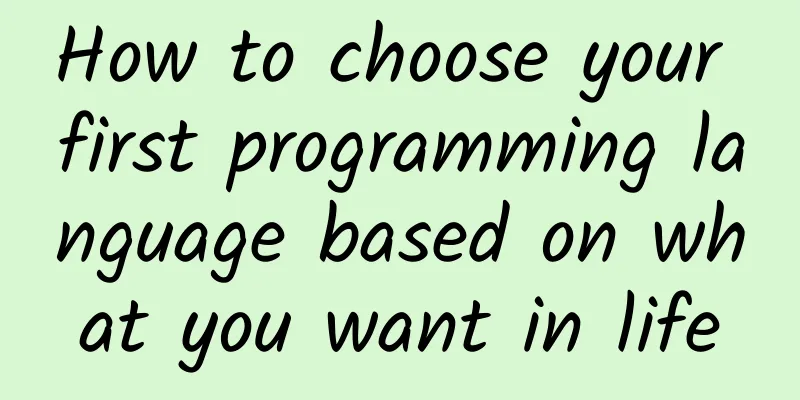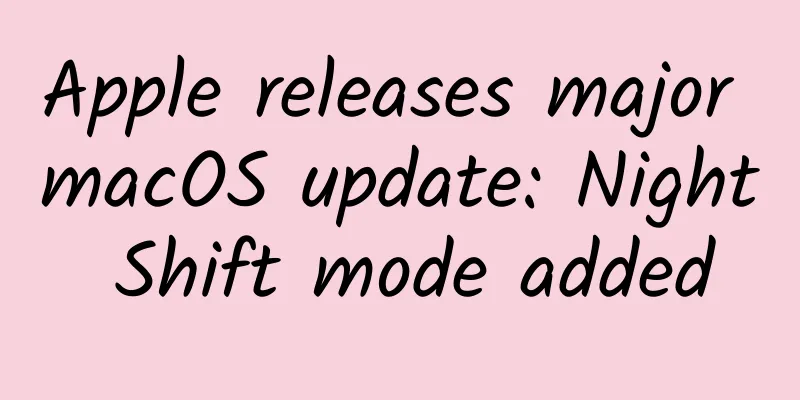How to choose your first programming language based on what you want in life

|
Life is easy for programmers. There are many job opportunities and the salary is good. Even if you don’t want to pursue a career as a programmer, it’s still a good idea to learn some programming, especially for jobs in web design, digital marketing, enterprise, and IT. But which language should you learn? Udacity has created a great infographic (see below) to help you choose, but I want to go a little deeper. Based on their infographic, I will give my suggestions according to your wishes, for example, I will give suggestions for travel lovers, designers, IT personnel or other professionals. In the past year, I have interviewed many people for different positions. I often communicate with other technology companies that are also recruiting and compare notes. This allows me to understand the long-term development direction of technology (let me disclose to you that I work at IBM). How to find a job anywhere? Are you a traveler? If so, you should choose a web development language like Python and invest less time in C. Recommend some cloud platforms to help you learn: Go for high-level sites like Heroku, BlueMix, and Azure. It's also good to know Amazon's AWS, but the learning curve is steeper than other options. As a beginner, you should focus on programming concepts rather than how to configure them. Stack Overflow Careers and Angel.co are two sites where you can find remote job opportunities. How to build great hardware If you plan on building something real, there are two great prototyping boards for you: the Raspberry Pi and the Arduino. You can learn more about them in this comparison article. In my opinion, the Raspberry Pi is a better choice because Python is easier to learn than C. But if you want to build hardware, you will eventually have to learn C (and C++). But if you're working on a personal "internet of things" project, sometimes it's easier to just buy a cheap, cracked-screen iPhone or Android phone. With IBM's BlueMix IoT demo, you can instantly track the 3D position and vibration of a smartphone without any programming. You can then modify the Python code used for the demo to do something cool that you think is cool. (For example, hide the iPhone under your ex's mattress and see if you can find any patterns.) I am a programmer, how can I increase my salary? In addition to learning a new language, another strategy is to learn and master more niche enterprise systems. For example, you can learn big data systems like Hadoop and Spark. (There are many places to learn these technologies for free online, such as IBM's Big Data University or Edx.org) What if I choose a career other than programming? For IT and web design, I have the following advice. But what about other industries? Wouldn't some programming knowledge be helpful? First of all, if you don't know what sumif() is, you should take the time to take an Excel course. Excel spreadsheets are much more powerful than people think. Most programmers will try to use Excel to calculate (if they can calculate it) before coding. For example, it only takes a few minutes to make a beautiful chart with data in Excel, but it may take many hours (or even days) to program it purely. After that, you should learn the following:
I am an IT practitioner, which programming language should I learn? If you are a Windows admin, learn HTML and PowerShell. If you are a Linux admin, learn HTML and bash scripting. You can make a lot of money in IT without learning to program: having an enterprise-level technical certification or qualification can make you about the same as a programmer, or sometimes even better. But knowing how to write bash scripts is an advantage. Which programming language should a web designer learn? Learning SASS, a language based on CSS, is a good place to start. After that, focus on learning JavaScript. ***Learn Node.js, which is JavaScript that doesn't rely on running in a browser. The Node.js market is hot now and will remain so for a long time. Don't stray from the field of JavaScript. Instead, specialize in Node.js and learn it in depth. (Note that io.js may replace Node.js in the future. So you need to keep up with the JavaScript community.) (Translator's note: Recently, io.js and Node.js have merged their code bases, but the author is right to keep up with the technology.) A note about the infographic When Udacity was describing the trend of JavaScript, I don't think they took into account that Node.js is just JavaScript that doesn't rely on a browser to run. In 2005, the demand for Node.js engineers was extremely high. It was difficult to hire an engineer with extensive Node.js experience without offering a 6-figure salary (as of October 2015). As more people learn Node.js, the market may calm down. ***One word of advice: Node.js is much harder to learn than native JavaScript. So, if you are a beginner, learn native JavaScript first, then move on to Node.js. ***, here is an infographic produced by Udacity. How to choose your first programming language |
<<: How can App developers in difficult situations save themselves?
>>: Practical information: A first look at the iOS 9 Contacts framework
Recommend
What you are eating may be a "child of the stars"! Enter the world of irradiated food
What you are eating may be a "child of the s...
How to create a fresh food mini program? How much does it cost to make a fresh food mini app?
Fresh food mini-programs are very popular nowaday...
403 seconds! China's "artificial sun" has made a major breakthrough
The 122254th experiment! At 21:00 on April 12, Ch...
Characters | Han Xiqiu: The female chief who searches for the "black chimney" on the seabed
She has been with the sea for thirty years and ha...
Why is "Wolf Warrior 2" so popular? Because Wu Jing understands operations!
Wu Jing is a relatively unknown martial arts acto...
Sogou promotion case: a high-quality traffic expansion solution that increased clicks by 60%!
Today, the editor brings you a classic and high-q...
A brief analysis of the three principles and four strategies for community content operations
A good community will inevitably form a stable cl...
This penguin has a unique way of molting, and they've been having some trouble lately...
Produced by: Science Popularization China Author:...
What is the relationship between oranges and tangerines? You may have been guessing wrong all along!
Mixed Knowledge Specially designed to cure confus...
Uncovering the secrets of how educational institutions acquire and distribute customers
The Internet dividend period has passed, and cust...
2019 Wedding Photo Industry User Insight Report!
The core findings of the 2019 Wedding Photography...
A Chinese writer won the Hugo Award again. Who is the painter of "The Painter of Space and Time"?
On the evening of October 21, at the 81st World S...
What is the black technology to save 16/32GB iPhone APFS?
There is hope for iPhone users with 16GB of stora...
Is soup more nutritious than meat? Soup contains more fat! These three types of people should be careful when drinking soup
Is soup more nutritious than meat? Soup contains ...
Tumor "natural killer"! New progress in NK cell research at USTC
Natural Killer (NK) cells are important members o...









